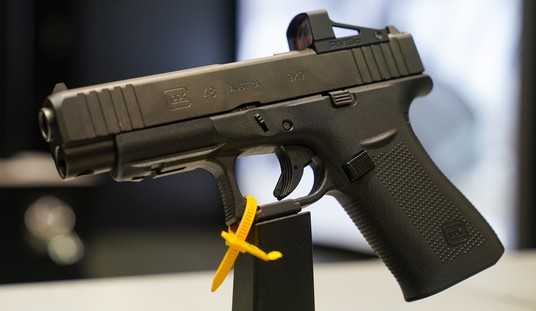It’s not hard to find a poll that seems to support gun control. They’re out there. They’re out there in enough numbers that many people believe that the majority of the American people support restricting the individual’s right to keep and bear arms.
However, this morning I came across a story where a self-described pollster addresses why we don’t get gun control despite this supposed support.
The first reason he gives is straightforward. It’s about how we’re a Republic, not a Democracy, and so even overwhelming support for legislation doesn’t necessarily translate to that legislation being passed.
Hi second and third explanations, however, are where things get interesting.
Second: Polling and public opinion are not as straightforward as they seem.
Focusing on only one or two poll questions can distort the public’s views regarding gun control.Polling numbers generally show strong support for gun control measures such as universal background checks and an assault weapons ban.
Simultaneously, most Americans think that additional gun control measures won’t reduce violent crime. This is not surprising because most Americans don’t blame guns for these tragedies.
And policy that reflects the “will of the people” may collide with legitimate legal constraints. Crafting legislation that disqualifies those we all agree should not possess firearms but protects the rights of law-abiding citizens is quite difficult.
For example, the American Civil Liberties Union opposed an order that would have prevented Social Security recipients with mental disabilities who have others managing their benefits from purchasing firearms. “Assault weapons” are difficult to define – and thus legally ban – because semi-automatic rifles can be used for hunting, too, as can AR-style rifles, although they are not commonly used for that purpose.
Finally, the influence of voters and interest groups can counteract the influence of the majority’s opinion in swaying policy.
For example, who votes matters. Gun owners are more likely than non-owners to vote based on the issue of gun control, to have contacted an elected official about gun rights, and to have contributed money to an organization that takes a position on gun control. Such differing rates of political activity are to be expected because many gun owners fear their rights are or will be restricted, and that drives them to the polls. But the frequent appearances of gun control advocates in the news can lead to the erroneous impression that they are more passionate than gun rights supporters.
These are all valid assessments of why a poll can supposedly show public support for gun control yet nothing seems to pass.
However, I would wager that these aren’t all of the reasons. These are the ones that can be presented without insulting or impugning the integrity of his fellow pollsters.
Other issues exist such as misleading questions, phrasing that fails to address how strongly someone feels about a topic. This is touched on slightly in the last quoted paragraph, but it doesn’t point out that this can be a willful attempt on the part of some pollsters to try and manipulate public perception. After all, peer pressure is a thing, and it doesn’t only impact school-aged kids.
Still, it’s nice to see someone addressing the difference in a calm, collected way.








Join the conversation as a VIP Member